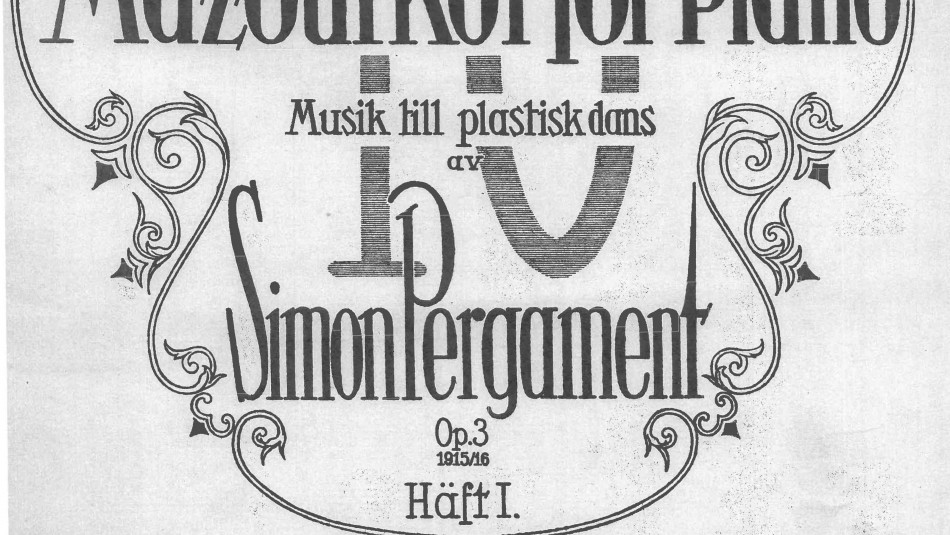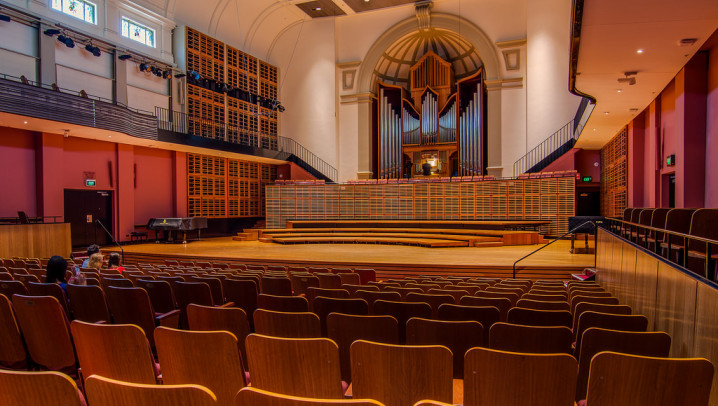
Mazurkas for Piano, Op. 3
Three Mazurkas by Simon Pergament-Parmet, performed by Daniel Herscovitch in Sydney.
| Date | 7th August 2017 |
|---|---|
| URL | https://vimeo.com/237389216#t=1175s |
| Format | Video |
Simon Parmet (earlier Pergament; 1897-1969) was a Finnish conductor and composer. Helsinki-born Parmet started to study piano under Glazunov at the St. Petersburg Conservatory in 1914. It was at this time that he wrote ten mazurkas for piano, dedicated to his sister Gulle Pergament.
During the Russian Revolution Parmet returned to Helsinki where he established the Jewish Choir Association. Parmet arranged several dozen traditional East-European Yiddish folksongs for the choir. He continued his studies in Berlin at the Stern Conservatory and worked several years as a conductor in Kiel.
Parmet returned to Helsinki in 1930 to become the conductor of the Finnish Opera. He composed music for S. An-sky’s play the Dybbuk which was performed at the Finnish National Theatre in 1934. In mid-1930s Parmet tried to settle in Palestine but returned to Finland. During winter 1940-1941, when Brecht was in exile in Helsinki, Parmet composed music for his Mutter Courage und ihre Kinder. The music, as many of Parmet’s compositions, has since been lost.
From summer 1941, when the so-called Continuation War broke out against the Soviet Union, Parmet lived in the U.S. and retuned to Finland only in 1949 after receiving a post as the conductor of the Radio Symphony Orchestra. Parmet was considered by some of his contemporaries as the best conductor in Finland but—despite receiving high posts—never managed to make a successful career. Parmet himself considered this to be because of his Jewish background. Only during his later years did he receive recognition, especially for interpretations and analysis of Sibelius’s symphonies.
© Simo Muir



